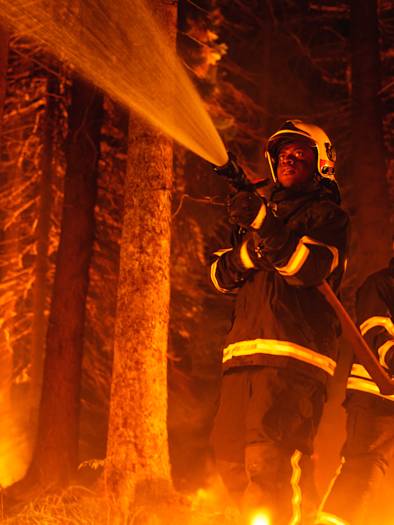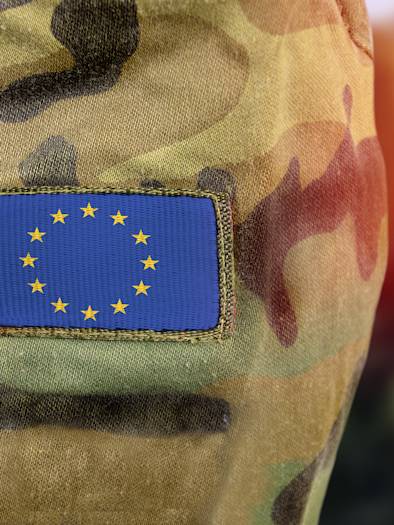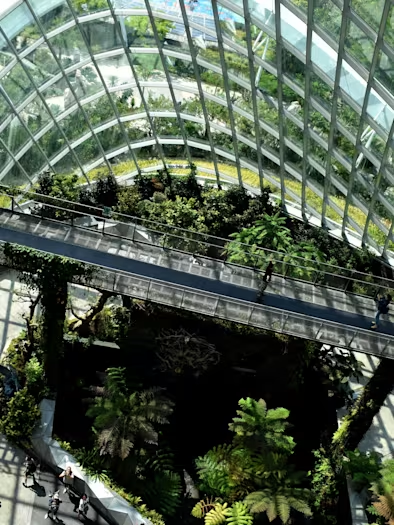
Will COVID-19 contaminate the EU’s Green Deal?
As sectors and states battle with the economic crisis, H+K Brussels’ Alain Berger, Jessica Faure and George Candon ponder whether COVID-19 will make or break the EU’s flagship Green Deal.
Frans Timmermans has called the Green Deal the ‘lifeline out of the crisis’, but others may beg to differ. If it is to be the lifeline the Commission vice president touts, EU leaders will have to have the courage to tie the massive debt-fuelled financial injection to re-kickstart the European economy to much more ambitious climate efforts and a drastic re-engineering of the European industrial model. Will today’s crisis give the Green Deal the urgency the EU was looking for — or will it rather be consigned to the dustbin of ambitious policy initiatives?
A chance in a million
What’s clear to everyone is the uniqueness of the opportunity to hand. Back in the halcyon days of January no one could have anticipated that the European economy would several months later be receiving its biggest injection of economic stimuli since post-war reconstruction. With the Green Deal already firmly on the EU’s policy agenda, it’s easy to see the appeal of not letting the current crisis go to waste, and once and for all achieving the European green reindustrialisation that has been much vaunted, but always a bit beyond the horizon.
It’s not going to be plain sailing, to stretch the Timmermans’s nautical analogy. The steep but inadvertent decrease in CO2 emissions that confinement has brought with it has allowed many EU member states to unexpectedly exceed their emission reduction targets — by our own estimations[1], CO2 emissions in the EU should drop by somewhere between 15% and 20% in 2020. Instead of using that as a springboard whence to go further, many countries may rather use it as an excuse to peddle backwards, undermine the sense of climate urgency and put the brakes on the ambitious objectives of the Green Deal itself.
Their mantra will go something like ‘first back to business as usual, and then think about climate targets once the economy’s back up and running’. Indeed, several EU member states have already put their climate change policies on ice in the name of dealing with the economic fallout from the pandemic, such as the moratorium on blending biofuels to avoid agrifood price increases. Those EU member states that still rely heavily on more polluting heavy industries – and have the greater burden to bear when it comes to climate mitigation measures – will be the first to clamour for a hiatus.
The economic collapse has also had an indirect negative impact on climate initiatives. Lower electricity demand (-20% on average) and the dramatic collapse of the price of CO2 under the Emissions Trading Scheme (ETS) have suddenly made lignite- and coal-fired plant production accessible and competitive. A glut of cheap oil will likely dampen investments in more renewable energies and keep the ETS CO2 price low. Will the EU’s proposed carbon border tax make sense when this CO2 price has already fallen to less than €15 a tonne during this crisis?
Some sectors are also saying it doesn’t make sense to hobble what they say will be an already difficult recovery with Green Deal obligations. Take the airline industry for instance, where the key question currently exercising policy wonks is whether EU-sponsored bailouts should come with environmental strings attached to radically to change and green one of the only sectors whose CO2 emissions have grown exponentially in past years. Airlines have already been saying that any attempt to do so will cost jobs, see airlines close and ultimately retard the recovery. On the other hand the airline industry isn’t the only one that will benefit from the dramatically lower ETS prices that could well last long into the future, if no corrective mechanism to reduce the abundance of free allowances is put in place.
But confinement has also caused major behavioural changes in the way society lives, works, consumes and moves. It’s difficult to see just now how the dust will settle on these in the long term, but many behavioural scientists and commentators are predicting a pretty fundamental reordering of post-crisis societal priorities, where the idea of back to business as usual won’t quite cut the mustard.
The global lab
With half of the world’s population at home, the worldwide shutdown is something of a dream come true for climate scientists. It provides them with probably the biggest-scale-ever global experiment which in normal times would never have happened: press pause on global activity, measure data, and gauge the impact on the economy, climate and health.
Data will make all the difference. It will make real the climate change modelling that was previously theoretic. It will considerably improve measurement of climate change impacts. And it will provide a wealth of detail on subjects from health (could fine particles be a vector for virus spreading?) to biodiversity, agriculture, and not least climate change itself.
It will of course take time to properly analyse and model this data, but not using it would be a massive missed opportunity. It should provide policymakers in the EU and the world over with plenty of food for thought. More robust, evidence-based climate models will make it more difficult for recalcitrant sectors and states to challenge the science. This will be music to the ears of the redoubtable Vice President, and the growing number of policymakers, climate activists, and indeed ordinary citizens who want to redouble efforts to achieve climate neutrality. The result of this could be stronger public support for measures related to climate mitigation, remote working, and buying local.
Whiter, Europe?
The EU’s eventual direction of travel in post-crisis recovery is anyone’s guess. What’s sure is that it’s going to involve an almighty tug-of-war, with ambitious policies and innovative industries pitted against the more sluggish states and recalcitrant vested interests. And it will all be played out against the backdrop of a changed societal zeitgeist. The stakes couldn’t be higher: it’s no understatement to say that the very survival of the Commission’s flagship Green Deal policy itself is in play.
[1] Calculations are based on the drop of 20% in electrical demand and reduction of transport traffic by 75%.








